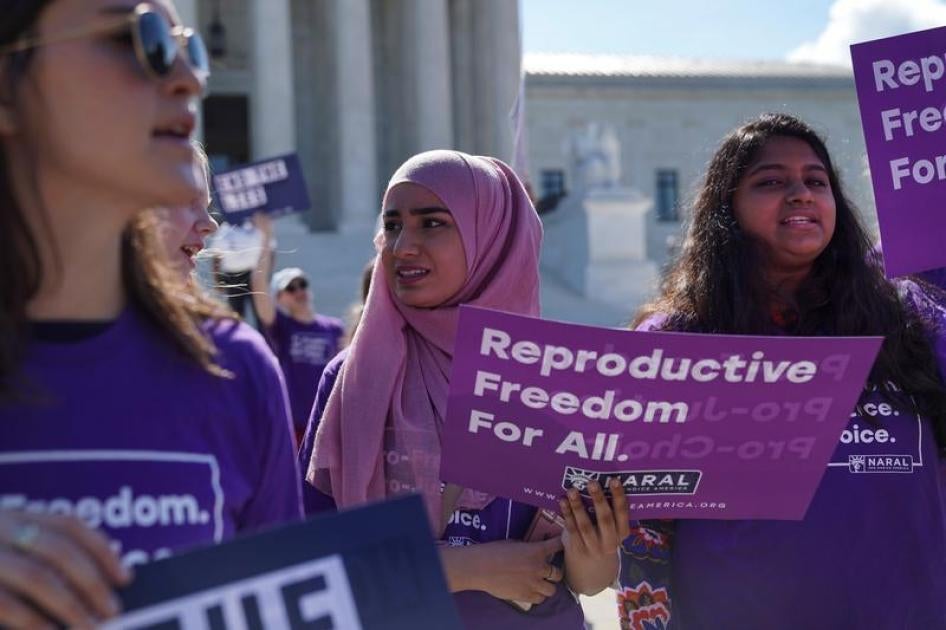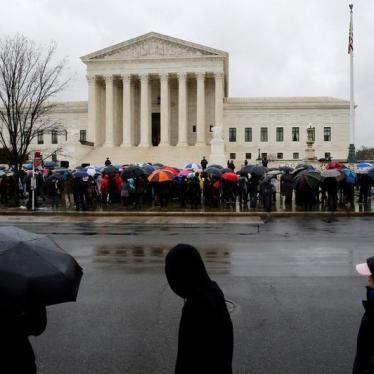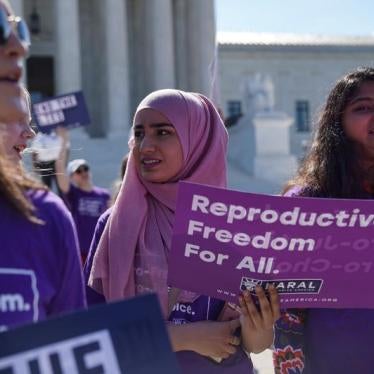The Department of Health and Human Services has proposed a binding rule that would stop health providers in clinics that receive federal public family planning money from providing patients with full and accurate reproductive health information and services. Requiring doctors to withhold information is terrible policy, and it will harm people living in poverty the most.
The funds are provided under Title X, a crucial safety net that aims to ensure that everyone can get basic preventive reproductive health care, regardless of their income or insurance status. A majority of Title X providers serve patients who are low-income, well over half whom — 2,564,992 of the roughly 4 million in 2016 — live at or below the federal poverty line.
The proposed rule would eliminate a requirement for Title X providers to give pregnant patients the opportunity to learn about all of their pregnancy options, including abortion. It would also muzzle doctors. Title X providers would be prohibited from promoting, supporting, or even presenting abortion as a choice when patients come to them with a pregnancy that is unplanned and unwanted.
They also would not be able to refer women to abortion services, except in one, very limited situation: if the woman is already certain she wants an abortion and explicitly requests a referral. In that case, a doctor can — but is not required to — give her a list of comprehensive prenatal care providers, some but not all of whom provide abortion. The doctor would be prohibited from telling her which of the referrals do or do not offer abortion, despite her explicit request.
Limiting women’s reproductive health care options by restricting the use of public funding is a well-worn tactic. Clinics already were barred from using federal funds to provide abortions, except in extreme circumstances, by a statutory provision called the Hyde Amendment. The author of this amendment, the late Congressman Henry Hyde of Illinois, was clear about his intent. “I certainly would like to prevent, if I could legally, anybody having an abortion, a rich woman, a middle-class woman, or a poor woman,” he told one colleague. “Unfortunately, the only vehicle available is the … Medicaid bill.”
Human Rights Watch researchers have seen the devastating effect that a lack of information has on women. In Brazil, for example, which criminalizes abortion except in very limited circumstances, one 23-year-old woman told my colleague she bought pills at a pharmacy and used them to try to end her pregnancy after she was raped at age 13. She didn’t know that she likely could have accessed abortion legally, even under Brazil’s restrictive laws. “I didn’t have a lot of information,” she said. “I didn’t know what I could do.” The pills caused heavy bleeding.
An emergency obstetrician told my same colleague that another womanlost her uterus and ovaries, and her colon was damaged after a clandestine abortion provider used something caustic that ruptured her uterus.
Whether in the United States or other countries where abortion information and services are restricted, those who suffer most are poor, marginalized women and girls, who may not be able to otherwise afford safe abortion care. Abortion in the United States is legal, and low-income women should have the same right to reproductive health care as everyone else. But if you can’t get information, it is hard to exercise rights you don’t know you have.
Federal law requires a specified comment period for the public before a rule can go into effect. The government must take the time to consider and respond to all relevant comments. If there is exceptional opposition to the rule, the agency proposing it might make modifications or withdraw it entirely. The comment period for this rule is open until July 31.
On Tuesday, with only a week remaining to comment, Planned Parenthood will host an online day of action, marching from the Capitol to the Department of Health and Human Services to demonstrate the breadth of opposition to this harmful rule.










